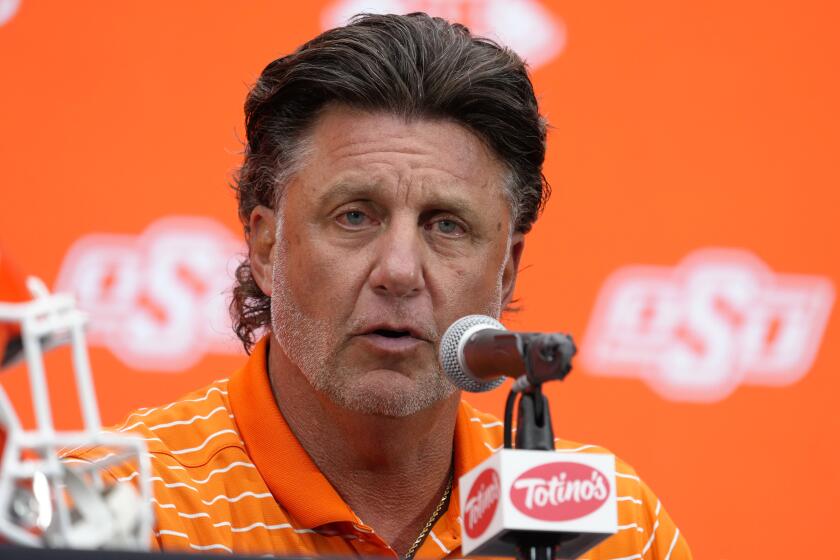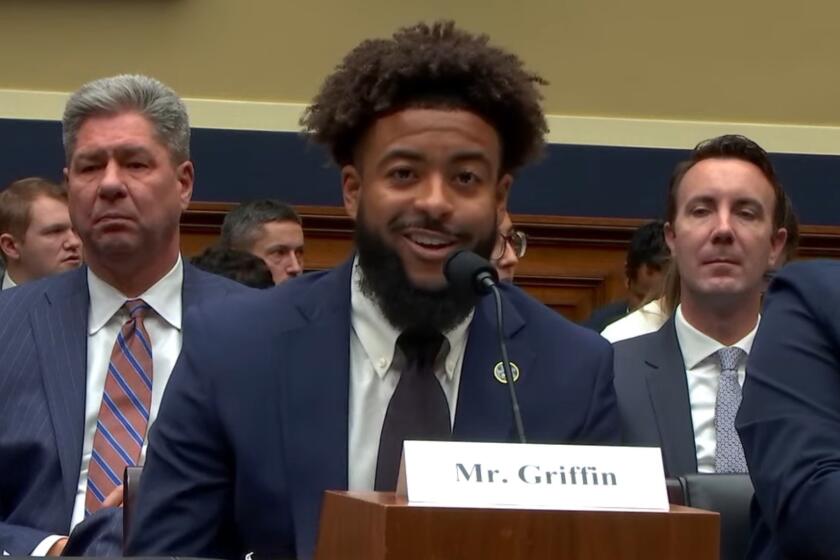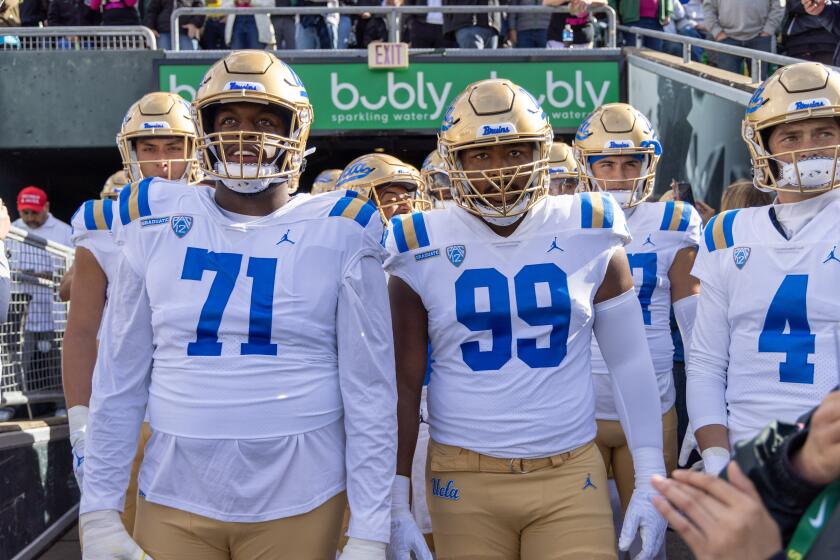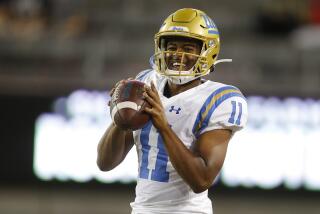Mike Gundy to Oklahoma State players’ agents: Quit ‘asking for more money.’ There’s a QR code for that
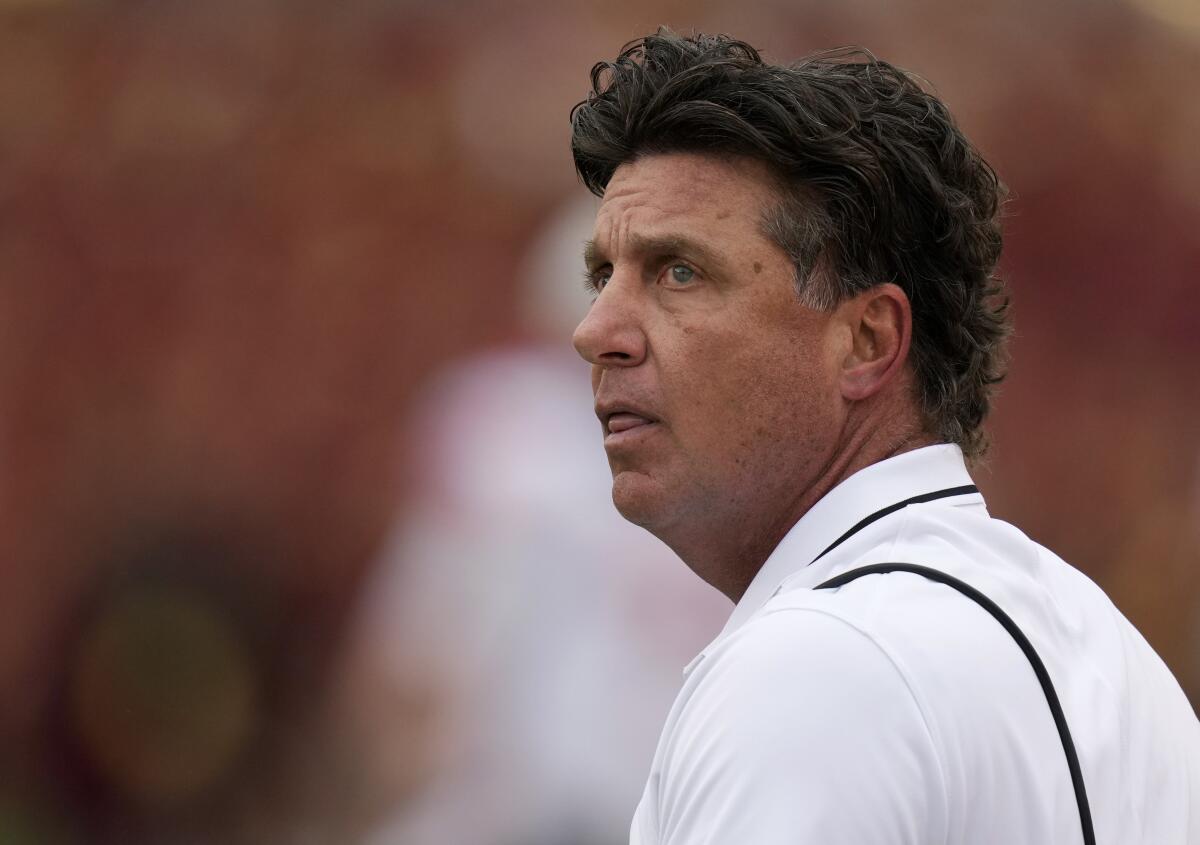
- Share via
Oklahoma State coach Mike Gundy wants his players to stop thinking about money and focus on football for the next several months.
But by no means does he want donors to stop contributing to the school’s name, image and likeness fund. On Tuesday, Oklahoma State announced the Cowboys will wear QR codes on their helmets this season that link to a donation page for the team’s NIL fund.
“This is a revolutionary step forward to help keep Oklahoma State football ahead of the game,” Gundy said in a statement released by the team. “It gives a chance for everyday fans across the world to have a real impact when it comes to supporting the NIL efforts for Cowboy football. I’m thrilled about this opportunity for our players.”
The codes will appear on 1½-square-inch decals on the back of the players’ helmets, which will be visible in close shots during game broadcasts. The codes will be used in social media posts and will appear on signage throughout Boone Pickens Stadium and in other select spots on game days.
Oklahoma State coach Mike Gundy backtracks after saying he’s driven with a blood alcohol content over the legal limit ‘a thousand times’ while trying to defend Ollie Gordon II’s DUI arrest.
Last week, Gundy told reporters “it’s been hard to really focus on football” while having to deal with some of the newer realities of the game at the collegiate level, including the transfer portal and, apparently, agents calling on behalf of individual players looking for big bucks.
But, he said, all of that is in the rearview mirror as the Cowboys prepare for their season opener against South Dakota State on Aug. 31 in Stillwater, Okla.
“It’s what I told the players, there’s no negotiating now,” Gundy said. “Portal’s over. All the negotiations [are] history. Now we’re playing football. Just coaching and playing football.”
Gundy was a star quarterback at Oklahoma State in the late 1980s and is entering his 20th season as the head coach at his alma mater. The college football landscape has changed dramatically in recent years, as NCAA rules have been relaxed regarding player transfers and earnings through their NIL.
UCLA quarterback Chase Griffin has become the go-to guy on all matters related to NIL and college athlete compensation — and his fight is far from over.
With practices well underway, Gundy said, players have been informed that any such talk needs to be put on hold for the next several months.
“The business side of what we do now is, we have to have those conversations with them,” Gundy said. “‘Tell your agent to quit calling us and asking for more money. It’s nonnegotiable now, you know — start again in December.’
“So now we’re able to direct ourselves just at football, and that part is fun. ‘Cause there’s been so much other stuff going on, it’s been hard to really focus on football.”
Gundy also might be glad to put this offseason behind him for another reason. Earlier this summer, Oklahoma State running back Ollie Gordon II was arrested in Cleveland County, Okla., and charged with driving under the influence by a person under 21 and transporting an open container of an alcoholic beverage.
UCLA says that it expects to participate in revenue sharing with its athletes beginning in August 2025.
In an attempt to explain why he gave the star player the opportunity to take part in Big 12 media day a week after his arrest, Gundy told ESPNU said of driving with a blood alcohol content over the legal limit, “I’ve probably done that a thousand times in my life, and, you know, was just fine. So, I got lucky.”
The same day, Gundy clarified his comments on X. “My intended point today at Big 12 media days was that we are all guilty of making bad decisions,” Gundy wrote. “It was not a reference to something specific.”
More to Read
Go beyond the scoreboard
Get the latest on L.A.'s teams in the daily Sports Report newsletter.
You may occasionally receive promotional content from the Los Angeles Times.
